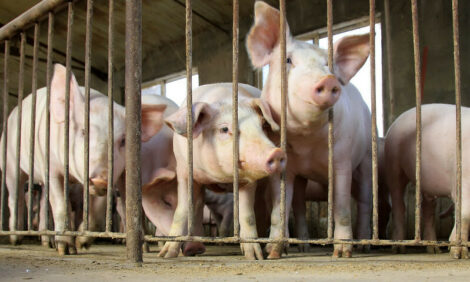



PED: Managing the Risks of Manure Movement
ANALYSIS - Proper management and handling of manure is critical in preventing the spread of disease, said experts during a teleconference organized by Alberta Pork, writes Chris Wright, Senior Editor for ThePigSite.John Carney, of the Manitoba Livestock and Manure Management Initiative (MLMMI) stated that when we speak about risk management, we are looking at the likelihood of a certain risk and the impact it will have if it occurs. Porcine Epidemic Diarrhoea Virus (PEDV) clearly raises red flags in terms of risk management.
There have been no cases so far where manure applicators have been responsible for PED transmission, he said. Still, manure applicators have responded very positively in terms of managing the risks for PED.
Mr Carney mentioned that at the North American Manure Expo in Missouri, USA, recently, there was a survey done of custom manure applicators in regards to PEDV.
The survey findings were very encouraging:
- 96 per cent said that they had changed or will change their practices due to PEDV
- 81 per cent have given more training to their employees
- 84 per cent have improved communications with their customers
- 34 per cent have invested in new equipment
- 24 per cent will try to invest in new equipment.
Clearly the biggest and most challenging issue for custom manure applicators is that of capital investment: buying new equipment better suited for dealing with PEDV.
Biosecurity was also an issue for manure applicators. What they find most difficult is planning their entrance and exit on the farm, so they can avoid interaction with other vehicles. Ideally farms would provide a separate access to the lagoon, strictly for the use of manure applicators.
Manure applicators also want to know where the “line of separation” is between clean and dirty areas on the farm. This is of critical importance in preventing disease spread.
Mr Carney noted that the manure applicator industry has changed, for the better. There is much more time going into the planning of the route in and out of the farm. They want to be able to get in and out of the farm, using as few workers as possible, while steering clear of other vehicles, and without crossing the “line of separation”.
Mr Carney floated the idea of having the farm provide some of the equipment, so the manure applicator does not have to bring all that equipment to the farm. That equipment would stay on the farm, which prevents disease spread.
Concluding, Carney pointed out that trucks and vehicles involved in manure applications must get the proper sanitation: hot water wash, disinfection and proper drying time. This is a time-consuming process, which can prove challenging to manure applicators who are on a tight schedule, but it must be done and done correctly.
Testing manure pits and lagoons
Mark Fynn, Animal Care Specialist for Manitoba Pork, said there is ongoing research regarding manure pit contamination.
The research is looking into the survivability and infectability of PEDV in manure pits and lagoons. The research is currently being done on one lagoon, on one farm, but the ability already exists to test all manure pits and lagoons in the province.
The pigs on the test farm are not infected. The sampling is done on 12 different locations of the lagoon at three different depths. Early results show that the PED virus is in the lagoon, in spite of the pigs no longer being affected.
The infectability of the virus is still being tested, using in-vitro cell lines.
A key question in all this is: How long does PEDV survive in pits and lagoons? While the real answer is “we don’t know”, said Mr Fynn, tests have shown that PEDV can survive for at least four weeks and even longer in temperatures under 25°C (77°F).
So, the concerns over manure as a vector of PEDV transmission are very real, and deserve a very concerted effort from pig producers and custom manure applicators alike.







